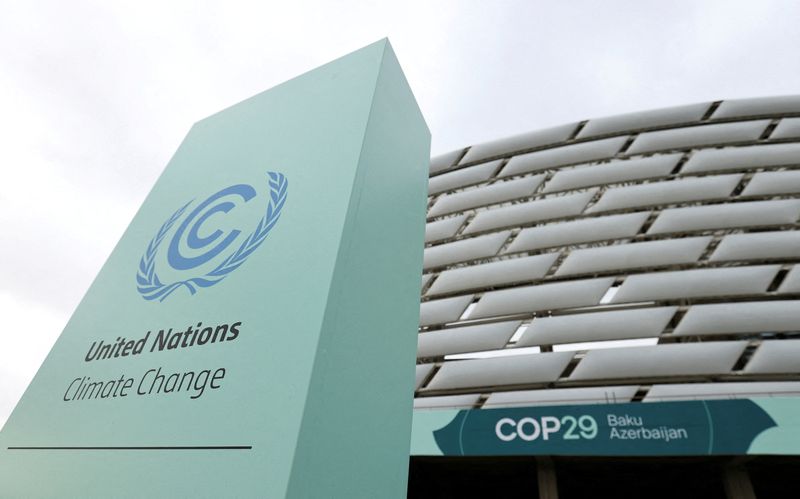
By Nia Williams
(Reuters) – Canada’s energy industry does not expect U.S. President-elect Donald Trump’s broad plans for protectionist trade measures will include tariffs on Canadian oil imports, because many U.S. refineries rely on barrels from north of the border.
Some Canadian oil industry participants saw Trump’s election as a positive that would stimulate energy investment across North America and could boost the value of U.S. dollars that Canadian producers receive for their crude. However, some said any increase in U.S. oil and gas production could raise competition for Canadian exports to other parts of the world.
Canada is the world’s fourth-largest oil producer and sixth-largest natural gas producer. The vast majority of its 4 million barrels per day (bpd) of crude exports go to the U.S., meaning any slowdown in energy trade would have a major impact on the Canadian economy.
Trump has floated the idea of a 10% or more tariff on all goods imported into the U.S. Most industry analysts say that is unlikely to include Canadian oil, which cannot be easily replaced since it differs from grades that the U.S. produces.
“If you were to slap on a bunch of tariffs for Canadian oil, it’s not like there’s an alternative readily available,” said BMO Capital Markets analyst Jeremy McCrea.
Many U.S. refineries, particularly in the Midwest and Gulf Coast, have invested in costly upgrading units to process heavy sour Canadian crude, which is harder to refine and therefore usually cheaper than the light shale oil abundant in the U.S.
In the Midwest, a refining region supplying major cities including Chicago and Detroit, nearly all refinery feedstock comes from Canada. Adding tariffs to crude imports would likely increase refiners’ costs and drive up fuel prices for consumers.
The chances of Trump imposing tariffs on Canadian barrels are extremely slim, said Commodity Context analyst Rory Johnston, but any trade measures would also hurt Canadian producers because they have few options to export elsewhere.
A slowdown in U.S. buying would likely leave crude bottlenecked in Alberta and drive Canadian crude prices lower, he said, estimating a 20% tariff could roughly double the current discount on benchmark heavy crude.
“The fact it is a risk at all highlights the unique vulnerability of the Canadian oil sector to U.S. policy,” Johnston said.
Trump’s media team did not immediately respond to a request for comment.
PRO-BUILD PRESIDENT
Canadian oil industry players said while the idea of tariffs is concerning, they also saw the potential for fewer regulations around oil and gas to rub off on Canadian policymakers.
“This is a pro-development and pro-build president, and that will extend into Canada as well, some of that investment,” said Tristan Goodman, CEO of the Explorers and Producers Association of Canada.
Trump’s re-election may force Canada’s companies and the government to invest more to improve the country’s productivity or risk falling further behind the U.S., Goodman said.
“It’s definitely much more positive than negative but there are a few unknowns,” he said.
Trump’s election victory sent the U.S. dollar higher against the Canadian dollar, although the loonie clawed back those losses later in the week. The Canadian currency is trading close to a two-year low, and is expected to remain under pressure. That could benefit Canadian oil producers, who pay operating costs in Canadian dollars but sell barrels for U.S. dollars, BMO’s McCrea said.
Last week, Ottawa unveiled draft regulations for an oil and gas emissions cap that many industry executives said would force production cuts. Opposition Conservatives, leading in the polls head of an election to be held within the next year, have said they would scrap those measures.
Some company executives also see a risk that an increase in U.S. oil and gas production and exports may shunt out Canadian exports to other parts of the world.
In 2023, 97% of Canada’s C$124 billion ($89.48 billion) of oil exports went to the U.S., according to the Canada Energy Regulator, but the start-up of the Trans Mountain expansion this year is lifting exports to Asia.
Canada’s first liquefied natural gas export project, the Shell-led LNG Canada terminal, is due to start operating next year and more LNG export terminals are underway.

“Anything they export to other parts of the world is directly in competition with the oil and gas we produce in Canada,” said Michael Belenkie, CEO of mid-sized producer Advantage Energy.
($1 = 1.3858 Canadian dollars)
This post is originally published on INVESTING.



